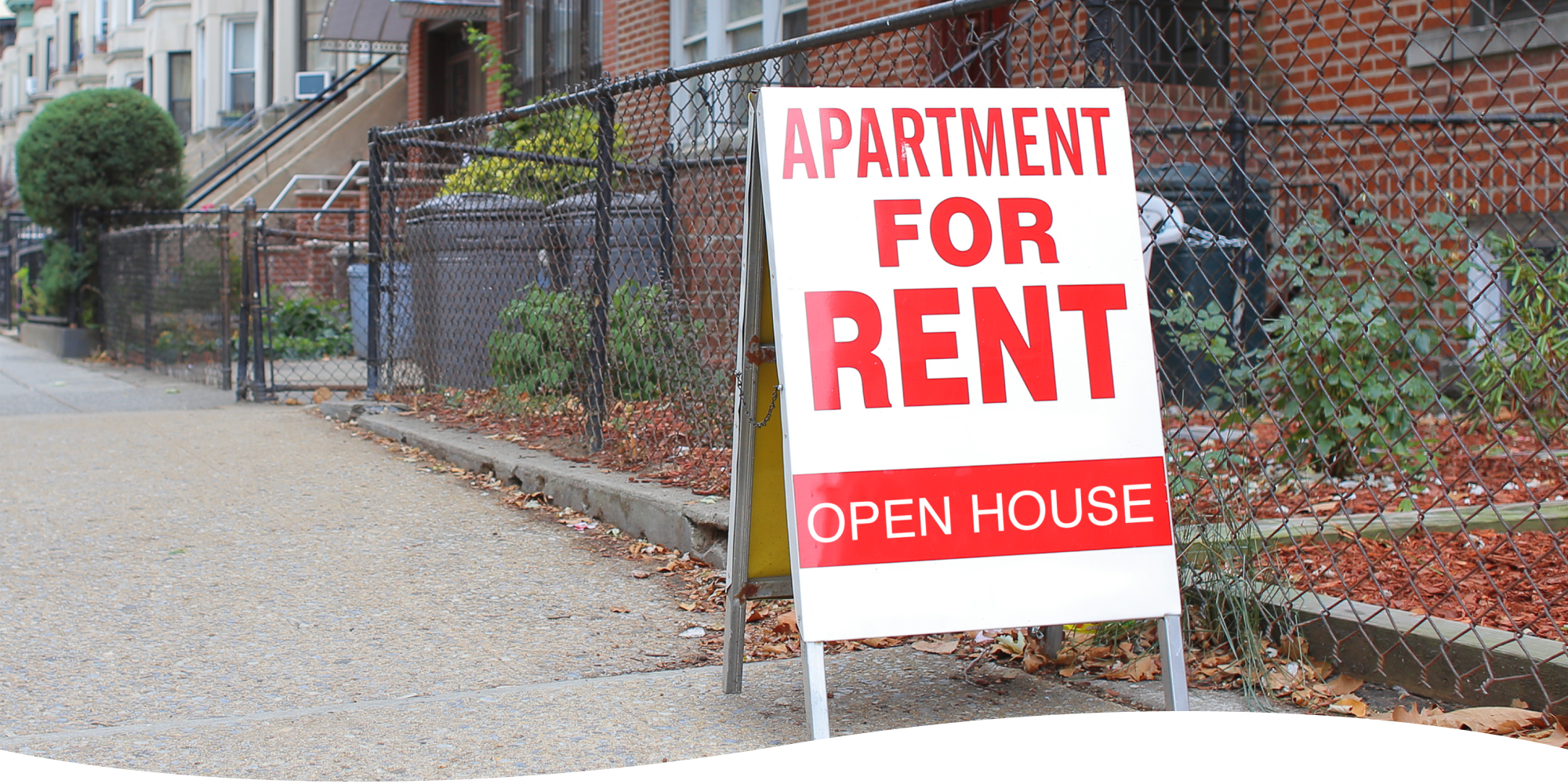Understanding Washington State’s Rent Increase Laws
10 Jun 2024 • 5 min read

Washington is one of the few states in the U.S. that’s seeing a rental price drop. In fact, in the last year, the state has seen a $150 decrease in monthly rent prices.
However, a declining market does not make you immune to rent increases and potential legal run-ins with landlords, so you should know your rights.
Here’s a rundown of Washington State’s rent increase laws so you know how to protect yourself from unjust increases.
How Much Can a Landlord Raise Rent in Washington State?
In the state of Washington, there’s an explicit ban on rent control. This automatically implies that landlords are free to increase the rent as much and as frequently as they want.
But there’s more to the Washington state rent increase laws. No city, municipality, or any other local body is allowed to implement laws that limit how much a landlord can increase rent.
That said, the state requires that landlords give sufficient notice to tenants if they want to increase the rent. The Residential Landlord-Tenant Act, RCW 59.18, states that a minimum of 60 days of notice is required before rent increases.
The rule is slightly different only in the city of Seattle:
- It’s mandatory for landlords to give a 180-day notice for rent hikes.
- However, in the case of subsidized tenancies, a 30-day prior notice is sufficient.
- All notices must contain information about how to obtain information about renters' rights.
Even with the notice period, a really high rent increase isn’t sustainable for tenants in the long run. To combat this, lawmakers have submitted bills to the Senate to control rent hikes in the state.
House Bill 2114, started by Rep. Emily Alvarado, D-Seattle, aims to cap the rent increase to a maximum of 7% every year. This will help tenants find affordable housing and also predict and prepare for rent increases.
Washington State Rent Increase Laws
Washington has no statewide laws around rent increases, but that doesn’t mean that you, as a tenant, don’t have any power. Here are other landlord-tenant laws in effect that you should keep in mind when dealing with a rent increase:
Rental Agreement Rules
Even though there are no state-wide or local laws, you can set your own rent increase rules by discussing them with your landlord at the start of the tenancy. Such rules must be clearly indicated in the rental agreement.
For example, you can agree upon a fixed year-to-year rent increase percentage and mention it in the agreement. You can also ask for a longer notice period, say, 90 days.
The landlord is bound to follow these rules during the duration of the rental agreement. That means if you’ve signed a 12-month rental agreement with a fixed rent stated, the landlord cannot simply increase the rent in the middle of the 12-month period, even with proper notice.
However, if you’re in mutual agreement with the landlord, these terms can be changed before the end of the tenancy. If you have a month-to-month lease agreement, the landlord can change the terms with a 30-day notice.
Increases After the Notice Period
A 60-day rent increase notice doesn’t mean the rent simply increases after 60 days. The moment the rent increase comes into effect should also be in accordance with the payment dates in your rental agreement.
Let’s say your rental agreement states that you pay rent on the 30th of every month. If your landlord gives you 60 days’ notice on the 20th of May, the rent does not increase from the 20th of July. Rather, it would increase from the next payment cycle (i.e., the 30th of July).
Late Fees
Sometimes, you might not be able to pay the rent on time due to an unexpected increase or other reasons.
In such scenarios, there are limitations to the late fee the landlord can ask for. Your landlord can only charge you $20 or 20% of the last month’s rent, whichever is higher.
But Seattle has a slightly different rule for this, too. The Government of Seattle caps the late fees to $10 and prohibits landlords from charging any other fee.
How To Determine Whether a Rent Increase Is Legal
Yes, any rent increase is legal in Washington. But property owners still need to abide by the federal Fair Housing Act. Under this act, landlords are prohibited from increasing rent based on a tenant’s race, color, national origin, or disability.
The state law also prohibits landlords from increasing rent as an act of retaliation. As a tenant, you can use legal services or file a complaint against the landlord if the rental unit’s safety or maintenance is compromised.
If your landlord increases the rent within 90 days of filing a legal complaint, it may be considered retaliation. Your landlord also can’t increase the rent to force an eviction.
If you feel you’re being discriminated against or retaliated against because of a rent hike, you can file a complaint with the Washington State Human Rights Commission (WSHRC).
How To Negotiate a Rent Increase in Washington
Tenants in Washington cannot refuse a lawful rent increase. But you can use the below tips to negotiate a lower rent and strike a better deal with your landlord.
Know the Market
Researching the current rental market gives you a good estimate of rental prices. You’ll also get some information that might help discourage your landlord from raising the rent.
For example, rent prices in Washington are falling in 2024. You can use this information to either ask for the same rent or negotiate an even lower deal.
If the market's rental prices are on par or far beyond your increased rent, you can also reconsider whether the negotiation is necessary.
Keep It Polite
When negotiating a deal, the tone and delivery of your words matter. If you want a chance at negotiation, try to schedule a meeting with your landlord by asking them beforehand. This way, you’ll show you respect your landlord’s time.
While in the meeting, try conveying your points in a calm, polite manner. Your landlord might also want to add something. Listen and understand his perspective before asking for a rent decrease.
In the same vein, do not ask for unrealistic deals. A rent decrease of $50-$100 might be a reasonable request. But if the landlord feels like he’s losing too much, he may back off from negotiating the rent.
Offer Value
Your landlord might be more willing to negotiate a lower rent if they get some value out of continuing your tenancy.
For example, if you’re good at maintaining their property, they might be happy to continue letting you stay at a lower rent. That’s because good property maintenance will save their property from mold, pests, and other forms of damage — ultimately saving them money.
Another factor that your landlord might consider is if you have renters insurance. While renters insurance isn’t legally required by the state, landlords prefer renting to tenants with insurance since it saves them from legal trouble and reduces costs in case of a mishap.
Having renters insurance will benefit you, too. Your insurance might offer coverage for your valuables, such as jewelry and furniture, that might not be covered by your landlord’s insurance.
Want to know more about renters insurance in the state? Check out our detailed guide on renters insurance in Washington.
Final Thoughts: Washington State Rent Increase Laws
Washington’s rental market is seeing a decline in rent prices. But landlords are still free to increase the rent as much as they want, thanks to the absence of rent control laws.
But the lack of rent control shouldn’t discourage you from negotiating a lower rent. The state’s tenant protection laws and our tips might help you.
And while you can’t predict a rent increase, you can rest assured that Goodcover renters insurance will protect you, no matter what your rent prices look like.
Get a quote today.
Note: This post is for informational purposes; insurance regulation and coverage specifics vary by location and person. Check your policy for exact coverage information.
For additional questions, reach out to us – we’re happy to help.
More stories
Team Goodcover • 26 Jun 2024 • 8 min read
How to Get Renters Insurance
Team Goodcover • 19 Jun 2024 • 6 min read
New Jersey Rent Increase Laws: Know Your Rights
Team Goodcover • 24 May 2024 • 7 min read
Know Your Rights: New York State Rent Increase Laws
Team Goodcover • 20 May 2024 • 5 min read
Know Your Rights: Nevada Rent Increase Laws
Team Goodcover • 19 May 2024 • 6 min read




